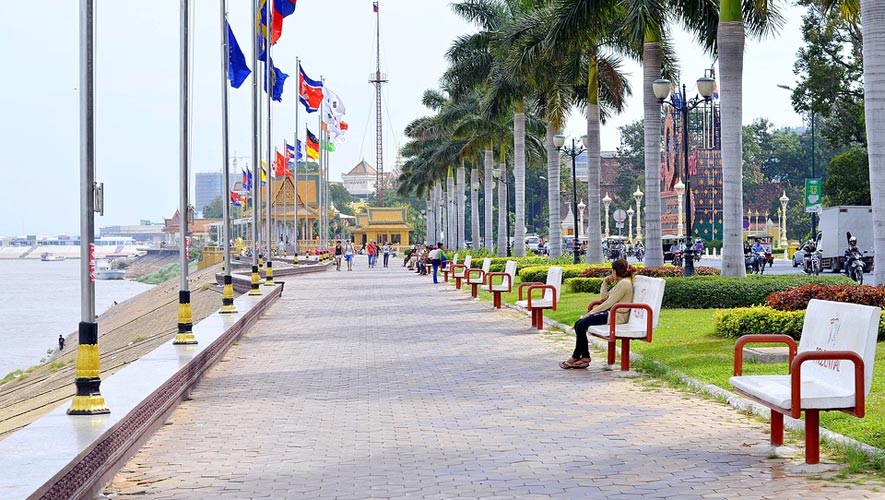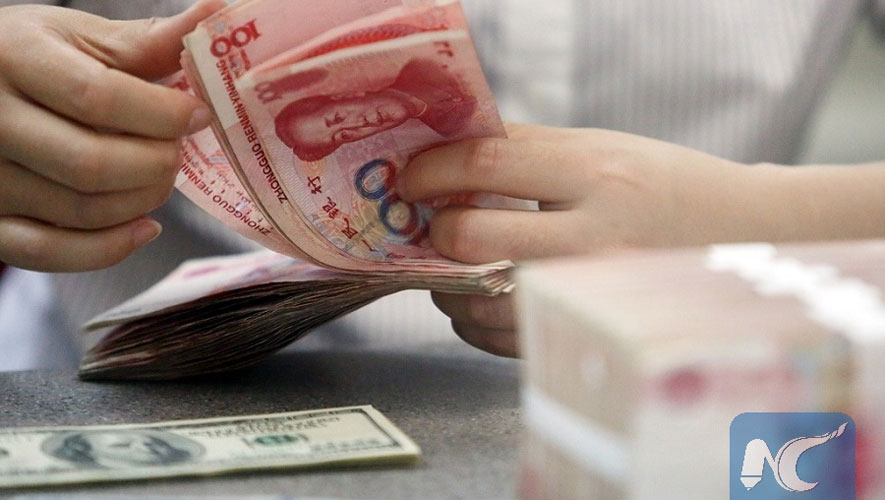With calls for reform on property tax, the Kingdom’s real estate sector holds its breath
For the latest Cambodian Business news, visit Khmer Times Business
Last month the International Monetary Fund (IMF) released findings from a working paper that took aim at the Kingdom’s property tax regime and called for reform in the name of financial inclusion.
“IMF Working Paper: Advancing Inclusive Growth in Cambodia” gave a 26-page analysis of options for tax reform and their impact on Cambodia’s gross domestic product (GDP).
Through careful consideration, the IMF’s research found that property tax currently generates just 0.1 percent of GDP, but an increase in property tax could hold the potential to increase GDP up to 2.7 percent. By contrast, the paper noted that an increase in value-added tax (VAT) and income tax would only generate GDP growth up to 1.8 percent and 0.3 percent respectively.
Mr Yasuhisa Ojima was recently appointed Resident Representative in Cambodia for the IMF and points out that the second section of the study is most relevant to inequality, but cannot say if the study’s findings will be considered by the Cambodian government.
“The working paper describes research in progress and is published to elicit comments and to encourage debates. Thus, we are not sure whether these ideas will be implemented by the authorities at this point.”
The research itself praised Cambodia’s General Department of Taxation (GDT) – which it claims had increased tax revenue from less than 10 percent of GDP in 2007, to 17 percent of GDP in 2017. Last year tax revenue reached $2.2 billion, up 17 percent from 2017 and just last week the GDT announced it had already collected 85.33 percent of their annual tax revenue for the year.
The IMF working paper goes on to say, “However, Cambodia’s revenue sources are skewed towards VAT and import taxes. Out of total tax revenue, 61 percent of total tax revenue is generated by VAT.”
This, the paper admits, is relatively high when contrasted with the region and cites VAT as one of the most regressive sources of taxation – given that it affects all equally in relation to their consumption. It states that progressive taxes, personal income, capital income and capital gains tax made up just 4.2 percent of GDP, which is considered by many as strikingly low.
“Similarly, revenue from property taxation accounts for only 0.1 percent of GDP, which is also very low compared with regional peers (e.g. Indonesia, Philippines and Malaysia)” the study finds.

“This is despite the progressive profile of property taxation, which is predominantly levied on richer households in the urban areas.”
Explaining the benefits, Ojima admits that reformation of property tax as the paper suggests would not likely bring about any immediate benefits, “We used a general equilibrium model for analysis which e.g. assumes flexible prices. In the short run prices are sticky, so the modelled benefits would only materialise in the medium to long term.”
In September the GDT reported that stamp duty on property transfers in 2019 had increased by 60.18 percent compared with the same period last year and that $227 million of the $1.85 billion it had collected by October 2018 was derived from property tax. This, coupled with the new tax base for stamp duty tax introduced in July this year, highlights at least a fledgling commitment to addressing the need for more progressive taxes, particularly within the real estate sector.
“A reform on property-related tax would certainly aid the ability to fast-track some of the key infrastructure projects in Cambodia, that will increase connectivity, trade, travel, accessibility and more,” says Tom O’Sullivan, chief executive officer of Realestate.com.kh who echoes the IMF’s notion that increased revenue generated through property tax could be used to fund infrastructure projects.
“Most importantly any revision, which of course means an increase in property tax must remain competitive with other emerging markets in the region. This is very important if we want to continue to facilitate international investment in the property sector,” says O’Sullivan.
The argument for remaining competitive regionally is often utilised to justify a range of matters – from lower taxes to lower wages – but, according to the ADB’s 2018 study, “A Comparative Analysis of Tax Administration in Asia and the Pacific”, property taxation was an area that few lower income countries had capitalised on.
“Taxes on property average 4.4 percent of total revenue and are almost 25 percent below the OECD average; further, property taxes are heavily concentrated in a small number of high-income economies (Australia; Hong Kong, China; New Zealand; the Republic of Korea; Singapore; and Taipei, China), meaning that their contribution in most other economies is very small,” the report states.
Of course this was before the more recent stamp duty reform but, nevertheless, the risk of Cambodia’s competitiveness being diminished by property tax perhaps stems from a heavy reliance on both the construction and real estate sectors for GDP growth.
According to the Ministry of Economy and Finance, the growth rate in Cambodia’s construction sector in 2018 was 18.1 percent and the National Bank of Cambodia writes that construction and real estate sectors are key contributors to annual GDP growth in 2018.
However, numerous critics, economists and policy advisers have long recognised the need for diversification – as with the EU’s Everything-But-Arms trade agreement and the garment manufacturing industry of Cambodia, disaster can strike. The gradual slowdown of the Chinese economy, coupled with prime minister Hun Sen’s directive banning online gambling and the tragic building collapse in Sihanoukville earlier this year have all highlighted threats to both the construction and real estate sectors in the Kingdom.
O’Sullivan fears that added tax reform – even if done with financial inclusivity and infrastructure updates in mind – could add to these woes.
“Investors accept the current landscape in terms of property tax. Obviously, the biggest risk is that a change or increase in property tax could steer investors and developers towards other neighbouring markets,” he argues, adding that any benefits reaped by a reformed property tax regime would take some time to be seen.
“In the short term, the real estate market will take a bit of a hit because buyers will sit back and wait for the dust to settle before deciding to purchase. Local and international buyers will wait and see. In fact, there is probably an element of that already with the report being released.”




